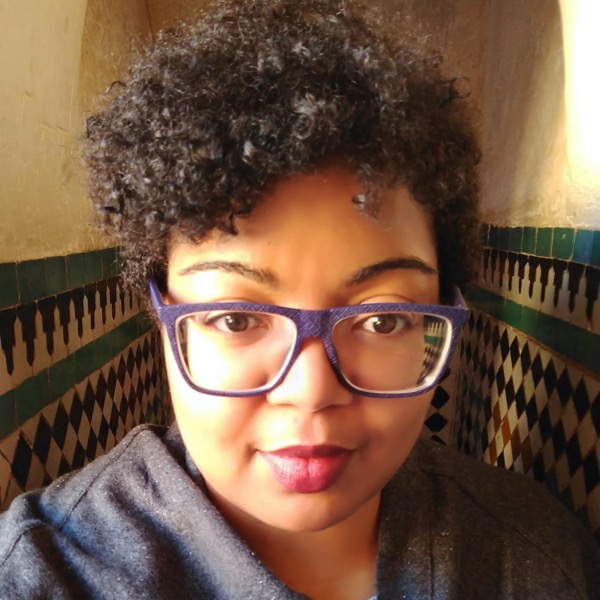When Tatiana Bryant, the research librarian for digital humanities, history, and African American studies at the University of California, Irvine, first met with the leadership of Every Learner Everywhere, she spoke about an approach to working with faculty and students that she sums up as “generous pedagogy.”
“I frame each session around understanding that students come to the class with their entire lives on their minds,” says Bryant. That means acknowledging personal challenges and public events that may be going on outside the classroom, checking in with students throughout each class, and adjusting lesson plans to respond to what she’s hearing.
Generosity — and flexibility — are especially important in subjects like Black studies or global studies, notes Bryant. “It’s an authentic and responsive way of learning heavy topics, when we have to think about things and integrate them both as teachers and as students.”
Generous pedagogy is perhaps even more essential as many students are transitioning to online learning formats for the first time, Bryant says. Instructors have to think about how to account for the vastly different experiences students have when they don’t even share a common campus environment.
(As an introduction to generous pedagogy, Bryant suggests the book Small Teaching: Everyday Lessons from the Science of Learning by James M. Lang, which recommends tools like shared rubrics, student-generated assignments, and self evaluations.)
Bryant is bringing her approach, and her varied background as a scholar, instructor, research librarian, and consultant, to bear as part of the Every Learner Everywhere Expert Network, powered by ISTE. She is one of a group of seven consultants providing flexible on-demand coaching to higher education faculty and leaders who are working to advance equity and inclusion in blended and online modalities. Her areas of expertise include digital humanities research methods and tools, managing digital humanities projects and data, and open educational resources.
Looking for innovation opportunities
In addition to her role at UC-Irvine, Bryant also has a background in cultural heritage preservation and has worked in museums, archives, and smaller university libraries.
In her day-to-day work as a research librarian, Bryant connects people with the tools, methods, and data that help their scholarship. “I get to feed my curiosity,” she says. In addressing the challenge a faculty member is having, she often ends up finding more diverse and inclusive resources for their syllabus or recommending digital tools that can engage their students.
She says the growth of online learning gives her hope for expanding access to higher education. Done effectively, it can accommodate neurodiverse students or make learning available to remote students with complex family and work responsibilities.
“Online learning has opened up so much opportunity,” says Bryant. “I don’t know if there’s any going back just to in-person without options for hybrid learning.”
As a digital enthusiast, she is watching for how emerging tools will improve collaboration — within or across institutions — using real-time closed captioning, video conferencing, or AI-powered translation.
Bryant points out that some subjects have a reputation of not lending themselves easily to online and remote learning. But she is interested in helping instructors in the performing arts, studio arts, and lab sciences rethink courses that rely heavily on in-person instruction. “I’ve seen a lot of innovation to make labs more accessible,” she says.
Bryant cautions that the potential of digital learning technologies shouldn’t be taken for granted. Online learning can bring innovation to the classroom, but instructors need to think through the implications of the digital tools they use, such as LMS software that isn’t accessible on mobile devices, or monitoring tools that feel more invasive to some students than others.
Putting students at the center of equity efforts
Bryant is particularly passionate about helping university instructors plan ways to integrate open educational resources (OER) into their syllabi.
OER can benefit students not just financially but also pedagogically by bringing in materials with more diversity or that support equity and racial justice efforts. Says Bryant, “OER is not just about replacing readings with works by minoritized authors, but about your entire approach to the course and the scholarship in your area.”
She is also interested in helping instructors think through ways to make the syllabus itself a more useful tool. Especially now, when current events are shaping many conversations in the classroom, Bryant suggests introducing a working syllabus that’s flexible and open to change throughout the semester.
Improving teaching and learning online is all about connecting dots, says Bryant. Whatever the challenge, someone has confronted something similar before. And she thinks her own wide-ranging curiosity and experience helps her identify the dots to connect.
“I’m excited to consult with people from a wide range of disciplines,” she says. “I’m curious to see where there’s synchronicity among the faculty who are interested in equity and online learning.”
This article is part of a series profiling consultants in the Every Learner Everywhere Expert Network, powered by ISTE. The program offers flexible, on-demand coaching to advance equity and inclusion in blended and online modalities using all aspects of digital learning.
Learn more about the program and schedule a consultation with Tatiana Bryant.


